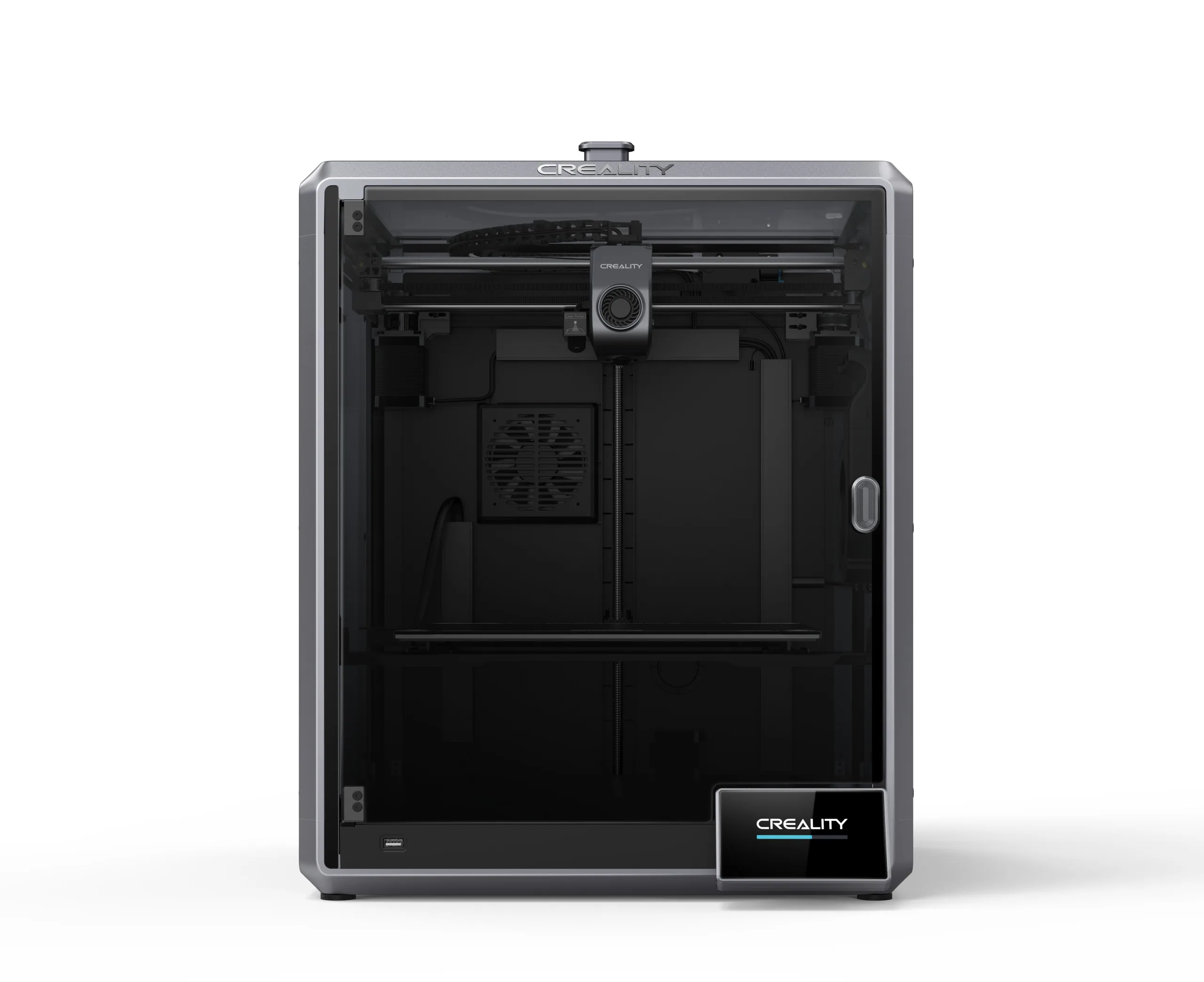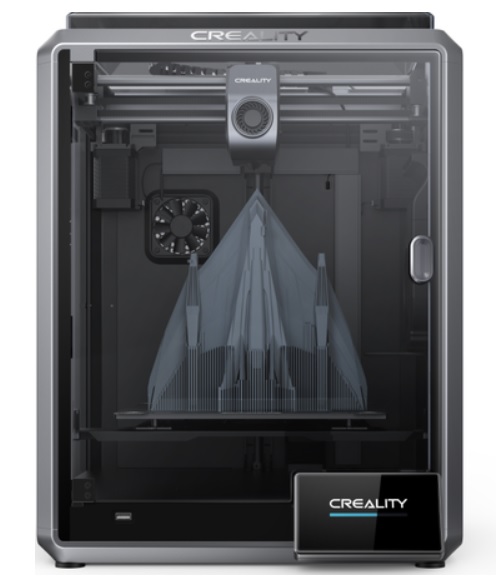Compare K1 Max vs K1
Comparison between the best 3D printers
Choose the best 3D printer at the best price. The cheapest 3D printers are here.
Buy a 3D printer here with 3D Fila.
 |
 |
|
| Model | K1 Max[BUY K1 Max] |
K1[BUY K1] |
| Printing Material | Filament | Filament |
| Buy Filament for Creality 3D K1 Max | Buy Filament forCreality 3D K1 | |
| Estimated price | $1300,00 | $399,00 |
| Manufacturer | Creality 3D | Creality 3D |
| Release Year | 2023 | 2023 |
| Print Volume [mm] | 300x300x300 | 220x220x250 |
| Printer Size [mm] | 435x462x526 | 355x355x480 |
| Weight [kg] | 18 | 12,5 |
| Power Loss Recovery | YES | YES |
| Enclosed printer | YES | YES |
| Bed Leveling | Automatic | Automatic |
| Filament End Sensor | YES | YES |
| Bed type | Heated | Heated |
| Power supply system | Direct Drive | Direct Drive |
| Standard nozzle | 0,4 | 0,4 |
| Maximum Nozzle Temperature [°C] | 300 | 300 |
| Maximum Bed Temperature [°C] | 100 | 120 |
| Maximum printing speed [mm/s] | 600 | 600 |
| Filament holder | YES | YES |
| Camera for supervision | YES | YES |
| Recommended filaments | ABS, PLA, PETG, TPU, PA, ASA, PC, PLA-CF, PA-CF, PET-CF | ABS, PLA, PETG, PET, TPU, PA, ABS, ASA, PC, PLA-CF, PA-CF, PET-CF |
| Recommended slicers | Creality Print, Cura, Simplify, Slic3r, IdeaMaker e outros | Creality Print; Cura, Simplify3D e PrusaSlicer |
| Maximum Resolution [mm] | 0,1 | 0,1 |
| Processor | ||
| Display | Display touchscreen 4,3'' | Display touchscreen 4,3'' |
| Power Supply | 110/220V / 350W | |
| Connectivity | USB / Wi-Fi / Ethernet | Ethernet / USB / Wi-Fi |
| Operating systems | Windows, Mac, Linux | Windows, Mac, Linux |
| Date of registration in the system | 2023-12-01 | 2023-04-17 |
| Release date | 2023 | 2023 |
| Extra features | The Creality K1 Max stands out as a fast Core XY 3D printer with a large build volume of 300 x 300 x 300 mm. It is fully enclosed and equipped with AI sensors to prevent print failures. This model has a smooth and flexible PEI build platform, and uses an automatic leveling system with LIDAR, as well as a filament run-out sensor. LAN, Creality Cloud and USB Flash Disk connectivity are available, as well as a 4.3-inch touchscreen interface. The K1 Max is robust, weighing in at 18 kg, and includes an AI camera and limited version of the Klipper firmware. Its motion system is solid and the printer is efficient with high-temperature filaments, but it is not silent. Assembly is 99% complete, requiring only minor adjustments before use. | The K1 is an extremely fast FDM 3D printer, reaching 600mm/s, 12 times faster than standard models. Equipped with a Core XY system and lightweight print head, it offers energy efficiency and high print quality. It stands out for its dual-gear extruder and quickly heated hotend, as well as dual cooling to prevent warping. Its robust structure ensures stability at high speed, with optimized software to speed up the printing process. |
| Support for multiple colors and materials (AMS and CFS) | NO | NO |
Notes * |
||
| Cost-benefit | 7 / 10 | 8 / 10 |
| Hardware | 4.8 / 10 | 4.8 / 10 |
| Tela | . | . |
| Print volume | 4 / 10 | 3 / 10 |
| Performance | 5 / 10 | 5 / 10 |
| [BUY K1 Max] | [BUY K1] |
Conclusion |
| In comparing the Creality K1 Max and the K1, both 3D printers released in 2023 by Creality 3D, several key differences and similarities highlight their unique strengths and suitability for different users. The **K1 Max** is designed for users who require a larger print volume (300x300x300 mm) and enhanced features that support professional-grade projects. With its robust build and AI-powered sensors to prevent print failures, it operates efficiently even at high temperatures with a maximum nozzle temperature of 300°C. Additionally, it offers automatic bed leveling, a heated bed, and multiple connectivity options, making it a versatile choice for a range of filament types. While it commands a higher price, it justifies this with a faster Core XY system and additional functionalities such as a larger touchscreen interface and enhanced motion systems. In contrast, the **K1** presents a budget-friendly option without sacrificing speed or quality. It offers a respectable print volume (220x220x250 mm) and retains many essential features, including automatic bed leveling and a heated bed. Although it may not support as many heavyweight materials as the K1 Max, it accommodates most standard filaments, providing excellent performance for everyday projects. The K1 benefits from a lighter design, and remains efficient with its dual-gear extruder and advanced cooling system. Ultimately, the choice between the K1 Max and the K1 should be based on your specific printing needs. If you prioritize larger print volumes and advanced features and are willing to invest more, the K1 Max is the clear choice. However, if you are looking for a cost-effective solution that still delivers impressive speed and quality for smaller projects, the K1 provides an excellent value. Both models score similarly in performance and cost-benefit analysis, making them strong contenders for individuals and professionals alike seeking reliable 3D printing solutions. |

